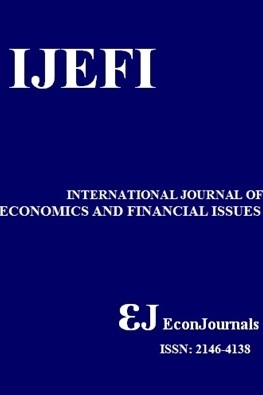Social Capital Formation, Internet Usage and Economic Growth in Australia: Evidence from Time Series Data
Social Capital Formation, Internet Usage and Economic Growth in Australia: Evidence from Time Series Data
Autoregressive Distributed Lag, Australia Economic Growth, Social Capital, Granger Causality, Internet Usage,
- Başlangıç: 2011
- Yayıncı: İlhan ÖZTÜRK
Human Capabilities and Economic Growth: A Comparative Human Capability Index
Revitalization of Pancasila Economic System in the Globalization Era
Methodological Tools for Risk Assessment in Industrial Enterprises
Lev İ. USHVİTSKİİ, Tat’yana A. KULAGOVSKAYA, Anna A. TER-GRİGOR’YANTS, İrina V. SOLOVYOVA, Elena S. MEZENTSEVA
A Comprehensive Definition of the Concept of Innovation in Russian and International Science
Vikroriya Valeryevna MANUYLENKO, Andrey Aleksandrovich MİSHCHENKO, Olga Borisovna BİGDAY, Yekaterina Leonidovna PUTRENOK, Anna Valeryevna SAVTSOVA
Augustine C. OSİGWE, Maria Chinecherem UZONWANNE
Loan Guarantees: An Option Pricing Theory Perspective
Fabio PİZZUTİLO, Francesco CALÒ
Rethinking of Coase Theorem: Externalities and Uncertainty
Evgeny A. KUZMİN, Sergei M. SEMYONOVYKH
Rafiq BHUYAN, James L. KUHLE, Talla Mohammed AL-DEEHANİ, Munir MAHMOOD
Human Capital-Economic Growth Nexus in Africa: Heteregeneous Panel Causality Approach
